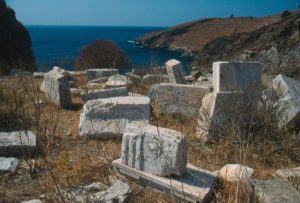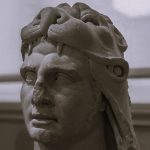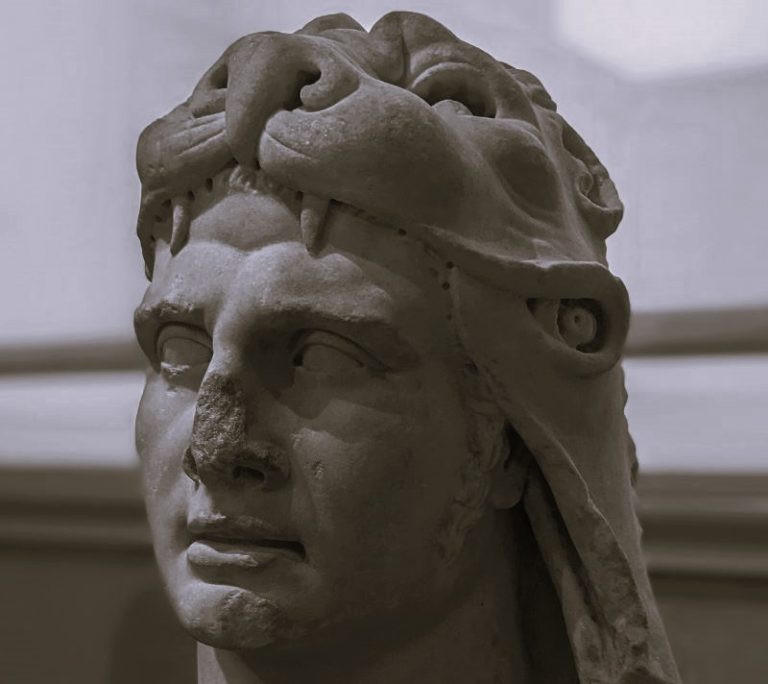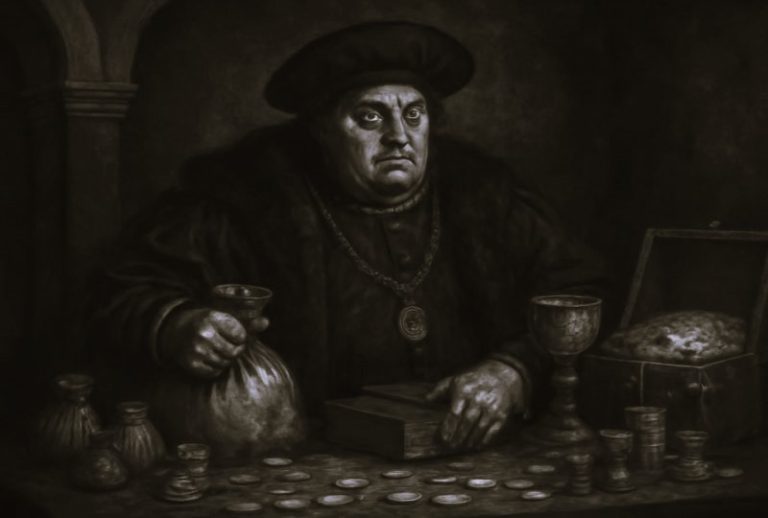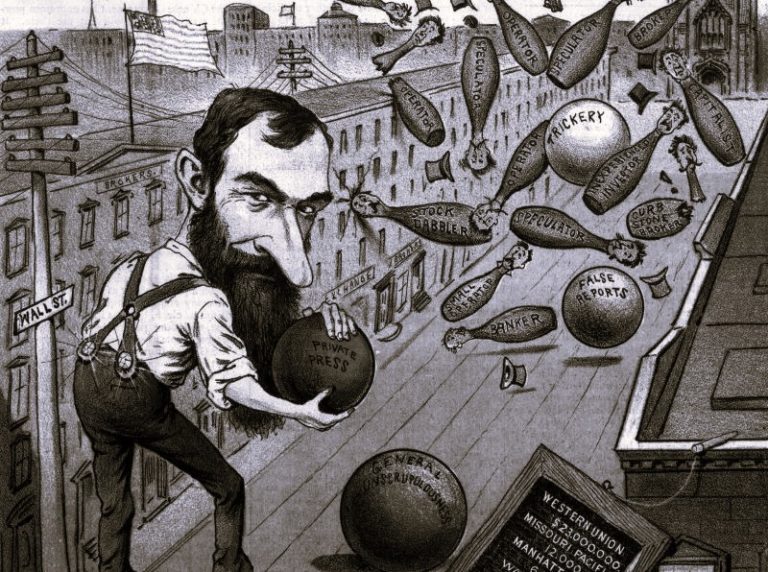Karthea Temple ruins on the island of Keos (modern Kea)
By Dr. Stavros Kouloumentas / 11.01.2016
Postdoctoral Classics Research Fellow
University of Humboldt, Berlin
CHS Research Bulletin 4:2 (2016)
Introduction
Three authors who were active in classical Athens seem to have been familiar with Prodicus’ doctrines.[1] Xenophon preserves a speech of Prodicus in which the young Heracles meets Virtue and Vice, two ladies of entirely different appearance and character who in turn make cases for living in accordance with their moral principles.[2] Aristophanes, on the other hand, describes him as an expert in celestial things and corruptor of citizens, and he constructs a fanciful cosmogony as an alternative to Prodicus’ account.[3] For his part, Plato presents Prodicus as a well-paid sophist who attempts subtle distinctions between near-synonyms and is obsessed with the correct use of words.[4] Each of these contemporaries of Prodicus provides some evidence concerning his diverse interests, ranging from natural philosophy to ethics and language, but makes no explicit reference to his attempt to explain the origins of religious belief.
It is authors who flourished in the Hellenistic era (Philodemus, Cicero, Sextus Empiricus) or even later (Themistius, Minucius Felix, Epiphanius) and are engaged in reviewing the theology of their predecessors that mention Prodicus’ theory on the emergence of religion. The aim of this paper is to show that, despite their thematic variations, the reports of Xenophon, Aristophanes, and Plato can be connected with and supplement the texts dealing with Prodicus’ theory. More specifically, I suggest that Prodicus employs his linguistic skills to reveal the true nature of gods and explains the emergence of religion as part of a cultural narrative that describes the origins of things, especially the genesis of social institutions and the formation of moral values and culture heroes.
The Emergence of Religion
Prodicus suggests that the development of religion can be divided into two phases: a primitive stage in which humans worship physical entities, followed by a culturally developed stage in which humans deify exceptional individuals.[5]
To begin with the first stage, the earliest humans considered divine a number of commodities that maintained their survival
[sc. Prodicus] says that the gods recognized by humans neither exist nor have knowledge,[6] but the ancients out of admiration deified the fruits of the earth and virtually everything that contributed to their livelihood
([τοὺς ὑ]πὸ [τ]ῶν ἀνθρώπων νομιζομένους θεοὺς οὔτ᾽ εἶναί φησιν οὔτ᾽ εἰδέναι, τοὺς δὲ καρποὺς καὶ πάνθ᾽ ὅλως τὰ χρήσιμα πρ[ὸς τ]ὸν βίον τοὺς ἀρ[χαίο]υς ἀγα[σθέντας ἐκθειάσαι], PHerc. 1428, fr. 19; cf. DK 84 B5 = Cic. ND I.118).
Prodicus of Ceos says that the ancients considered as gods the sun, the moon, the rivers, the springs, and in general all the useful things for our life because of the benefit derived from them, just as the Egyptians considered as god the Nile (Πρόδικος δὲ ὁ Κεῖος ἥλιον, φησί, καὶ σελήνην καὶ ποταμοὺς καὶ κρήνας καὶ καθόλου πάντα τὰ ὠφελοῦντα τὸν βίον ἡμῶν οἱ παλαιοὶ θεοὺς ἐνόμισαν διὰ τὴν ἀπ’ αὐτῶν ὠφέλειαν, καθάπερ Αἰγύπτιοι τὸν Νεῖλον, DK 84 B5 = S. E. M IX.18; cf. IX.39, 50-3).
Humans expressed their gratitude to the nourishing stuffs offered by the earth, to the sun that provides them with light and warmth, to the moon whose regular movements help them to establish a rudimentary calendar, and to the rivers that supply them with water. Indeed, the physical entities mentioned by Prodicus were widely honoured as the divinities of the heaven (the Sun, the Moon), the water (the Nymphs, the river Acheloos), and vegetation (the Horai, the Earth Mother). The genesis of religion is thus interpreted as manifesting our recognition of the impersonal entities that contribute to the survival of humankind.
In a more advanced stage, which presupposes the existence of settled living and farming, humans deify those who invent useful things:
It is clear that Persaeus really abrogates and demolishes the divine or knows nothing about it since, in On Gods, he says that Prodicus was not unpersuasive in writing that things which nourish and benefit humans were first considered and honoured as gods, and later the discoverers of foods, shelters, and the other arts, such as Demeter, Dionysus, and the Dioscur
(Περσα[ῖος δὲ] δῆλός ἐστιν [ἀναιρῶν] ὄντω[ς κ]α[ὶ ἀφανί]ζων τὸ δαιμόνιον ἢ μηθὲν ὑπὲρ αὐτοῦ γινώσκων, ὅταν ἐν τῷ Περὶ θεῶν μὴ [ἀπ]ίθανα λέγῃ φαίνεσθαι τὰ περὶ <τοῦ> τὰ τρέφοντα καὶ ὠφελοῦντα θεοὺς νενομίσθαι καὶ τετειμῆσθ[αι] πρῶτον ὑπὸ [Προ]δίκου γεγραμμένα, μ[ε]τὰ δὲ ταῦτα τοὺ[ς εὑρ]όντας ἢ τροφὰς ἢ [σ]κέπας ἢ τὰς ἄλλας τέχνας ὡς Δήμητρα καὶ Δι[όνυσον] καὶ τοὺ[ς Διοσκούρ]ου[ς, DK 84 B5 = PHerc. 1428, cols. II.28-III.13).
The gratitude of humans is now expressed towards exceptional individuals who benefit the entire community. Instead of worshipping the crops themselves, for instance, humans assume that some divinity invented the cultivation of crops and bestowed it on humankind, either directly or with the help of some agent (e.g. the myth of Demeter and Triptolemus). Practical arts were thus associated with benefactor gods who hold a prominent status in the Olympian pantheon, including Demeter (the provider of crops and inventor of agriculture), Dionysus (the inventor of wine and viniculture), and the Dioscuri (the horse tamers and protectors of sailors).[7]
Reconstructing the Seasons
Horae of the four seasons, Greco-Roman mosaic from Chebba C2nd A.D., Bardo Museum
Apart from the aforementioned points we know next to nothing about the content and scope of the treatise in which Prodicus formulated his theory. We can, however, speculate as to these issues by taking into account the title of Prodicus’ treatise and the identity of the gods who are interpreted as human fictions.
Prodicus composed a work entitled the Seasons (Ὧραι), which included encomia on exceptional individuals, like Heracles (DK 84 B1). The relatively uncommon title refers to the goddesses who were initially associated with the seasonal cycle and the process of flourishing but were gradually elevated to the supervisors of social order, especially peace and fair administration.[8] The twofold dimension of the Horai can be seen in a speech that extols the importance of agriculture to the formation of religious belief. Themistius appeals to the Horai and other divinities associated with the cultivation of the soil, and notes that Prodicus ascribes all religious practices, mysteries, and festivals to the benefits of agriculture:
Let the gods who oversee agriculture to be summoned to help with this speech and what is strongest of all the Muses and the Muse-leader himself, since they receive the annual return from agriculture – libations and sacrifices and banquets and all that the Horai make grow from the earth – not only for this, but also for everything that humans have from god. If we should also summon Dionysus, the Nymphs, Demeter’s daughter, the rain-bringing Zeus, and nourishing Poseidon, then we approach the rites, and we shall invoke the wisdom of Prodicus in our account, who derived all religious practices of humans and mysteries and festivals and rites from the goods of agriculture, believing that the notion (ἔννοιαν)[9] of gods came to humans from this source and making it the guarantee of all piety (DK 84 B5 = Them. Or. XXX, 349a-b).
Being the main art that supplies humans with useful things, agriculture encourages them to worship what grants these goods. The religious sentiment is progressively shaped and transformed into rites by expressing the hopes, the agonies, and the gratitude of farmers not only to the impersonal forces of vegetation and fertility but also to the inventors who help them to enhance their harvest.
The emphasis on the primacy of agriculture over religion reflects an effort to explain the origin of cultural conquests, trace their sequence, and assess their importance. Hence it can be argued that the Seasons contains a sort of cultural narrative, like other contemporary texts that refer to the rise of civilization.[10] Unlike the accounts that describe the moral decline of humankind and the miseries of the present era, a prominent motif of several cultural narratives is the evolution of humans and the improvement to the means of securing nourishment as a result of their own efforts or the intervention of some divinity. The earliest humans were thought to live in scattered units and to be bereft of moral values and laws, feeding on whatever could be found in nature, and suffering from cold weather and the attacks of wild beasts. These hardships made them come together and establish means of survival and communication, thus gradually founding the fundamental elements of a community. Such a cultural narrative seems to have been included in the lost treatise of Protagoras On the Condition of Things in the Beginning (DK 80 B8b) from which Plato draws material. According to Protagoras’ myth, as adapted in the Platonic dialogue, the worship of gods is an integral part of communal life and is placed alongside other achievements, such as language, house-building, clothing, agriculture, and politics, which arise after Prometheus’ donation of fire and technical wisdom to humans.[11] The fragmentarily preserved work of Democritus on the development of humankind, as reported by Diodorus Siculus (who presumably offers a patchwork of accounts of cultural evolution), provides an explanation along the same lines.[12] In a savage stage, humans nourish themselves with fruits found here and there, but they gradually learn from experience to store them and use practical arts. This step includes the cultivation of the soil for growing crops and rearing domestic animals: the man-collector becomes the man-farmer, and the nomad who has no permanent residence is replaced by the citizen who is attached to his homeland. An elaborate description of this transition can be found in a fragment of Moschion.[13] After referring to the dietary customs of the earliest humans who lived similarly to animals (vv. 1-17), Moschion cites the possible reasons fοr the civilizational revolution (vv. 18-22) and turns to the invention of agricultural blessings bestowed by Demeter and Dionysus (vv. 23-5). This stage is characterised by advances in agricultural techniques, the fortification of cities and sheltering of houses, the improvement of human diet, and the burial of the dead (vv. 25-33). The care for the corpses is contrasted with the former state of violence and lawlessness, and indicates that a set of religious norms, such as funeral rites and the belief in post-mortem reward or punishment, have been established. The survey of these accounts of cultural evolution confirms that religion and agriculture were often supposed to arise in an advanced stage. Placed in this context, the Seasons describes the gradual transition of the primitive life of nomads and hunters to the organised life of agrarian society, which is based on the permanent residence in places suitable for cultivation, the domestication of animals, and the activities of communal life.
Let us now examine to what extent this interpretation fits with the fragmentary and heterogeneous texts pertaining to Prodicus. The sole fragment deriving from the Seasons is the famous speech concerning “Heracles’ choice” (DK 84 B1). Xenophon offers a lengthy extract from Prodicus adapted to the dialectical plot of the Memories (DK 84 B2 = Xen. Mem. II.1.21-34). Xenophon’s Socrates replies to Aristippus, the Cyrenaic philosopher whose aim is to live pleasantly. Thus Xenophon’s Socrates focuses on the moral elements of the story that are suitable for his instruction without necessarily preserving its actual setting and full content. Εven if “Heracles’ choice” commences with the young man at the crossroads, we lack the end of the story, namely the response of Vice to Virtue’s rebuttal and the decision taken by Heracles, as well as the explanatory remarks, if any, offered by Prodicus. The story is normally interpreted as being a rhetorical display piece structured as contrasting arguments or an allegory conveying a moral lesson. However, other interpretations should not be excluded, since “Heracles’ choice” is not preserved by other ancient reporters to check against the version of Xenophon.[14] For example, the speech narrated by Xenophon’s Socrates may be part of a general discussion concerning Heracles that aims to demythologize a popular hero and lay emphasis on his human status and moral code. Indeed, the story contains no elements of the widespread narratives concerning Heracles’ labours and his apotheosis. Rather, Prodicus presents the mythical figure as a common man who has to choose between the difficulties of a virtuous life and the pleasures of an immoral life. It seems likely that Prodicus placed several culture heroes in a similar interpretative framework, since, according to Plato’s Symposium, Prodicus and other eminent sophists composed encomia on exceptional personalities (DK 84 B1). We may think of Demeter, Dionysus (the main providers of agricultural blessings), and the Dioscuri (a conjectural supplement to the lacunose text), who are mentioned by Philodemus in connection with Prodicus’ theory (PHerc. 1428, cols. II.28-III.13) and by ps.-Plutarch in his account of Stoic theology (SVF II 1009 = ps.-Plut. Plac. 880d). How are these encomia connected with the discussion as to the formation of agrarian society and the emergence of religion?
The cultivation of the soil requires temperance, physical strength to overcome adversities, and respect to the divinities that reward the hard-working and fair individuals. These values are praised in “Heracles’ choice” as necessary for those following a modest lifestyle and are sharply contrasted to the pursuit of pleasure and indolence promoted by Vice.[15] They can hardly be separated from the fundamental concept of justice which ensures that each farmer enjoys the goods acquired by his own toil and not by immoral and violent means, as Hesiod emphasises in the Works and Days.[16] The following extract from Virtue’s speech is characteristic:
For the gods give to humans none of the things that are good and noble without labour and care. Rather, if you want the gods to be gracious to you, you must tend to the gods. If you wish to be loved by friends, you must do good deeds for your friends. If you desire to be honoured by some city, you must benefit the city (τὴν πόλιν ὠφελητέον). If you think that you deserve to be admired for your virtue by all of Greece, you must try to benefit Greece. If you want the earth to bear abundant crops for you, you must tend to the earth. If you think that you ought to become wealthy from livestock, you must care for your livestock (DK 84 B2 = Xen. Mem. II.1.28).
The exhortation commences with the rewards of the gods, turns to the honours acquired from social groups (friends, fellow-citizens, compatriots; note the emphasis on being beneficial to the city), and finally deals with the gifts of the nature. Agriculture and animal husbandry are not envisaged as mere practical arts but have a moral and political dimension. They lead to the formation of a solid class of citizens who work hard, refrain from enjoying pleasures, respect their friends, defend the interests of the city and the nation to which they belong, and represent the embodiment of the Horai into communal life: good-order (Eunomie), justice (Dike), and peace (Eirine). The post-mortem reward of these humans is mentioned at the end of Virtue’s speech:
And whenever their appointed end comes, they do not lie forgotten without honour but flourish remembered, celebrated in song for all time (ἀλλὰ μετὰ μνήμης τὸν ἀεὶ χρόνον ὑμνούμενοι θάλλουσι). O Heracles, child of good parents, by working hard at such things it is possible for you to possess the most blessed happiness (DK 84 B2 = Xen. Mem. II.1.33).
The concluding remarks of Virtue seem to allude to the potential apotheosis of exceptional individuals. Those who adhere to the lifestyle proposed in her instruction gain reputation among people, and their deeds are celebrated in hymns and stories. This is obviously the first step towards apotheosis for the traces of culture heroes are gradually lost, while their acts or discoveries become legendary as they are transmitted from generation to generation and become known in different places. It is interesting that the speech, as preserved by Xenophon, is abruptly stopped here, without giving some hint as to how Prodicus interpreted “Heracles’ choice”. Evidence from other sophistic speeches that deal with mythical figures, such as the Encomium of Helen and the Defence of Palamedes of Gorgias (DK 82 B11-11a), indicates that the sophists used to challenge the common narratives concerning the role of legendary figures of the past and to draw attention to elements not recognized by their audience. Seen from this perspective, the inclusion of Heracles in a treatise that explained the origins of religious belief in conjunction with the rise of civilization denotes that Prodicus was interested in the representation of Heracles as a culture hero and wished to reveal his actual status: a virtuous mortal who was deified posthumously by his admiring contemporaries.[17]
Prodicus on the Gods and His Contemporaries
The Dance of the Muses at Mount Helicon by Bertel Thorvaldsen (1807). Hesiod cites inspiration from the Muses while on Mount Helicon. / Alte Nationalgalerie, Berlin
Three objections can be raised against the proposal that Prodicus put forward a cultural narrative: first, the story narrated by Xenophon’s Socrates contains positive references to the gods; second, there is no sufficient evidence that Prodicus was interested in the origins of things; third, Plato, the main witness to the sophistic movement, refers mainly to the linguistic skills of Prodicus.
To begin with the first point, the gods are mentioned as the supervisors of noble deeds and dispensers of goods in the twofold presentation offered by Virtue, the personification of righteousness. According to Virtue, humans should tend to the gods in order to acquire their grace (DK 84 B2 = Xen. Mem. II.1.27-8). Virtue also claims that she is connected with the gods, whereas Vice has been expelled from their company (DK 84 B2 = Xen. Mem. II.1.31-3). These references in a speech attributed to Prodicus seem incompatible with the proposal that the Seasons included a theory on the emergence of religion which was often interpreted by ancient reporters as denying the existence of the gods.
The alleged atheism of Prodicus can be interpreted as a false generalisation of his inference that the worship of some gods reflects the human gratitude to commodities and benefactors. It is hard to accept that Prodicus dared to attack religious norms, given his status as distinguished diplomat and teacher in Athens (DK 84 A1a-3) where Demeter and Dionysus, the prime examples of his theory, were highly honoured for their agricultural blessings and Theseus, a mythical figure comparable to Heracles, was considered the founding hero of the city.[18] Both Plato and Xenophon, two authors known for their piety and conservatism, treat Prodicus with respect. Moreover, no ancient reporter suggests that he was prosecuted with the charge of impiety, like other fifth-century thinkers (Anaxagoras, Protagoras, Diagoras of Melos).[19] In fact, his reputation as an atheist comes from the Hellenistic era when it became common to describe earlier and contemporary thinkers as atheists, especially in the debates between the members of rival philosophical schools. The report of Themistius indicates that Prodicus’ aim was not to undermine religious belief but to interpret the worship of benefactor gods as a cultural phenomenon with positive effects on communal life. Prodicus’ inference that certain gods of the Olympian pantheon derive from human experience is not necessarily a declaration that all gods are fictional and thus non-existent.[20] Rather, it can be understood as an effort to reinterpret the divine by removing human misconceptions and stressing the antithesis between nature and social conventions (φύσις-νόμος), as other fifth-century thinkers did.[21] Philodemus’ reference to “the gods recognized by humans” (PHerc. 1428, fr. 19) indicates that Prodicus’ emphasis is laid on the human beliefs about gods and not on the divine itself. Moreover, if Prodicus’ theory was constructed as a full account of religious belief, it would be unconvincing. Commodities and benefactors fail to capture the wide range of gods in Greek religion, for people deified, inter alia, terrifying figures (the Erinyes, Styx), infernal divinities (Hades, Erebus), and personified concepts (Fate, Strife, Sleep). On the other hand, if Prodicus’ theory is interpreted as explaining the origin of some gods, especially those associated with agriculture and other practical arts, then its explanatory force cannot be denied.[22]
Confirmation that Prodicus was interested in the emergence of religion as part of a large-scale project to explain the origins of things can be found in Aristophanes, who often parodies current philosophical ideas. In the Birds, the chorus rejects the traditional cosmogonies, chiefly represented by Hesiod’s Theogony and Orphic poems, and constructs an alternative explanation of the genesis of the world which features birds. The cosmogony is introduced as follows:
So that you may hear correctly from us everything about things in the heaven, and having correct knowledge of the nature of birds and the birth of gods, rivers, Erebus, and Chaos, tell Prodicus from me to weep now (ἵν’ ἀκούσαντες πάντα παρ’ ἡμῶν ὀρθῶς περὶ τῶν μετεώρων, / φύσιν οἰωνῶν γένεσίν τε θεῶν ποταμῶν τ’ Ἐρέβους τε Χάους τε / εἰδότες ὀρθῶς, Προδίκῳ παρ’ ἐμοῦ κλάειν εἴπητε τὸ λοιπόν, DK 84 A10 = Ar. Αv. 689-91).
The chorus promises to offer a correct explanation (note the double repetition of ὀρθῶς which alludes to Prodicus’ obsession with the “correctness of names”, DK 84 A11) of celestial things and the origin of primordial beings, including gods. The dismissive reference to Prodicus in the following verses suggests that his own account on the same topics is now replaced by the cosmogony of the birds.[23] They claim to be older and thus superior to the earliest gods (Ar. Av. 701-3; cf. 468-9). They also stress their usefulness to humankind as romantic gifts, seasonal indicators, messengers of prophecies, and givers of bounty (Ar. Av. 704-36). Although Prodicus placed humans first, followed by the material and anthropomorphic divinities which humans invented, the birds appear to be prior to both mortals and immortals. Aristophanes includes Prodicus among “the present experts in celestial things” (τῶν νῦν μετεωροσοφιστῶν, DK 84 A5), thus implying that he was somehow concerned with issues pertaining to astronomy-cum-theology, like the Socrates ridiculed in the Clouds.[24] Prodicus’ interest in celestial bodies is confirmed by Sextus Empiricus and Epiphanius who include the sun and the moon among the useful things which, according to Prodicus, were deified by the earliest humans (DK 84 B5 = S. E. M IX.18; cf. IX.39, 52-3; Epiph. Adv. Haer. IX.25). Hence Prodicus’ reputation as expert in celestial things may be based primarily on his claim that certain celestial bodies have been wrongly honoured as gods.
Having established that Xenophon and Aristophanes enrich our limited knowledge as to Prodicus’ theory, let us turn to the third contemporary of Prodicus who provides some evidence for his method. Prodicus is mainly known for the conceptual distinctions that he makes in Plato’s early dialogues.[25] He is typically concerned with a couple of synonymous terms (e.g. εὐφραίνεσθαι and ἥδεσθαι, DK 84 Α13), and endeavours to find out the basic meaning which they share and then to clarify the precise meaning of each term by providing examples. By making these subtle conceptual distinctions, Prodicus can show those who wish to be instructed in rhetoric what term is appropriate in each occasion and how they can avoid ambiguities. To be sure, his interest in synonymics presupposes sufficient knowledge of three interrelated issues: (a) the proper division of words (as Aristotle confirms in the Topics, DK 84 A19); (b) the distinction between the conventional use of a word and its original meaning (as Sextus Empiricus implies in referring to the metonymic use of words, DK 84 B5 = S. E. M IX.18); and (c) the etymology of words (which is part of the investigation into “correctness of names” to quote Plato’s Cratylus, DK 84 A11), a process which reveals the true nature and origin of words and helps us to revise their common use in many cases.
Although the extant sources provide no direct evidence that Prodicus used etymology as a method to support his explanation of the origins of religious belief, a report of Galen encourages such a hypothesis. In the treatise On the Nature of Man, Prodicus notes that the term φλέγμα (“phlegm”), which is widely used for the cold and moist humour (Morb. Sacr. 9; Arist. Prob. 862b28), contains a contradiction: it derives from πεφλέχθαι (the perfect infinitive passive of φλέγειν = “to burn”), which in fact refers to something subject to heat. In order to restore linguistic propriety, Prodicus suggests the term βλέννα (“mucus”) as more appropriate for designating the cold and moist humour (DK 84 B4). Underlying this proposal is the view that language is a mere convention, inasmuch as a number of words had a different meaning originally. An expert in synonymics should review these misuses and reveal the actual meaning of words. It is thus reasonable to suppose that Prodicus investigated divine names as part of his examination of how humans conceptualised the gods and came to worship certain things and figures. This investigation leads Prodicus to infer that some divine names reflect the gratitude of humans to the blessings of nature and the achievements of culture heroes.
Indeed, Philodemus castigates the attempts of Prodicus and other alleged atheists to etymologise divine names by modifying the original wording.[26] Similar attempts are documented in contemporary texts, including Plato’s Cratylus and the Derveni papyrus, as well as in fragments pertaining to Stoic theology.[27] The name Demeter constitutes a good example of how Prodicus used his linguistic skills to conclude that some gods originate from human experience. The etymology reveals that Demeter is understood as the “earth mother” (δῆ + μήτηρ)[28] or the “grain mother” (δηαὶ = “barley”; cf. EM 264.13). Moreover, the epithets attributed to the goddess indicate that the repeated cycles of vegetation motivate humans to assume that a sort of mother supplies them with nourishment.[29] They thus depict Demeter as an inexhaustible and universal source of fertility. It is not accidental that she is also called “the law-giving Demeter” (Hdt. VI.91; D. S. V.68.1-3), and she is supposed to have introduced both the art of agriculture and the mysteries in Athens (h. Hom. IV.256-495; Isoc. IV.28). The chief protector of agriculture is thought to be the generator of social institutions, thus confirming Prodicus’ theory concerning the primacy of agriculture over other cultural conquests.
Conclusion
It is time to draw some tentative conclusions regarding Prodicus’ contribution to the intellectual debates of his era. If we set apart the biographical reports concerning Prodicus, approximately half of the remaining sources derive from Plato. The latter consistently presents Prodicus as a hunter of wealthy pupils and an expert in synonymics. Nevertheless, the various texts examined in this paper contradict rather than confirm the monolithic presentation of Plato. A combination of the reports of Xenophon, Aristophanes, and Hellenistic philosophers shows that an important aspect of Prodicus’ work is the investigation into the genesis of social institutions, the interconnection between agriculture and religion, and the formation of moral values and culture heroes. Prodicus appears to be a historian of civilization, adhering to the tradition established by several fifth-century thinkers, rather than a sophist merely preoccupied with linguistic issues.
Notes
[1] References to Presocratic testimonies and fragments are made in accordance with the handbook of Diels-Kranz. The texts pertaining to Prodicus’ explanation of the origins of religious belief are printed together (DK 84 B5), but significant material is omitted or quoted from obsolete editions. The collection of Untersteiner (1961: 190-6), is more complete, although a fragment from Philodemus’ On Piety is not included. The monograph of Mayhew (2011: 44-50), provides the full textual evidence. I quote Phld. Piet. 519-41 from Obbink (1996: 142-3); PHerc. 1428, fr. 19 from Henrichs (1976: 15).
[2] DK 84 B2. Xenophon (DK 84 A4a) also refers to the high fees charged by Prodicus.
[3] DK 84 A5, A10. The text from the Birds, as printed in the handbook of Diels-Kranz, is incomplete. See below p. XX.
[4] DK 84 A2-4, A11, A13-8, A20. The few references of Aristotle (DK 84 A12, A19) accord with the Platonic reports.
[5] An examination of Prodicus’ theory, with particular emphasis on its reception and the problems pertaining to the textual evidence, can be found in Henrichs 1975, 1976, 1984.
[6] This statement can be interpreted as an outright denial of divine intelligence, which was traditionally assigned to the gods, but the Greek text can also be translated as expressing a sort of radical atheism that supersedes Protagoras’ agnosticism: “[sc. Prodicus] says that the gods recognized by humans do not exist and that he does not know them”. Detailed discussion in Henrichs 1976.
[7] Prodicus’ list may also include the culture hero Aristaeus who taught humans to hunt, cultivate olives, and keep bees. Ceos, which was heavily exposed to heat and drought, received through Aristaeus rain and refreshing winds (A. R. Arg. II.519-30; D. S. IV.81.5-82.6; Virg. Georg. IV.281-558). Cf. Nestle 1936: 151-2.
[8] The names of the Horai varied but were normally considered to be three: either Thallo-Auxo-Carpo, the goddesses of seasonal changes and growth (Pi. Ol. XIII.17; Paus. IX.35.2), or Eunomie-Dike-Eirene, the daughters of Zeus and Themis and the supervisors of social order (Hes. Th. 901-3). Cf. Corn. ND 57.6-8.
[9] This is an emendation proposed by Diels and adopted by most scholars, including Untersteiner (1961: 196), Guthrie (1969: 239, n. 2), and Mayhew (2011: 193). The editors of the Orations (Dindorf, Schenkl-Downey-Norman) prefer the manuscript reading εὔνοιαν (“goodwill”).
[10] This proposal was first formulated by Nestle 1936 (cf. Nestle 1941: 351-3; Henrichs 1984: 142-3; Mayhew 2011: xxii, n. 8), who reconstructs the content of the Seasons from Themistius’ Oration XXX, Xenophon’s Oeconomicus V, and the ps.-Platonic Axiochus and Eryxias. Nestle suggests that Prodicus used the concept of “usefulness” to stress the role of agriculture in the rise of civilization and its primacy over other cultural conquests. On other accounts of cultural evolution see Guthrie 1969: 60-84.
[11] DK 80 C1 = Pl. Prot. 322a3-8. On the question of the value of the myth as a source of the historical Protagoras see Manuwald 2013.
[12] DK 68 B5.1 = D. S. I.8.1-7. Detailed discussion of Democritus’ theory and other parallel texts can be found in Cole 1967.
[13] Mosch. fr. 6.23-33 Snell. The fragment derives from an unknown tragedy of the fourth or third century BC, but it is commonly agreed that Moschion’s account of cultural evolution reflects the spirit of earlier theories. Cf. Guthrie 1969: 81-2.
[14] Scholars disagree as to whether “Heracles’ choice” is a close approximation of Prodicus’ own words (Sansone 2004, 2015; Tordesillas 2008) or contains Xenophon’s terminology (Gray 2006) or is heavily rewritten by Xenophon (Dorion 2008). Xenophon was, of course, contemporaneous with Prodicus and may well preserve a speech that he himself heard in Athens (note the introductory remark: “Prodicus the wise, in his composition about Heracles, which he displayed to very many people”, DK 84 B2 = Xen. Mem. II.1.21). Xenophon’s Socrates promises to quote Prodicus’ speech to the best of his recollection (DK 84 B2 = Xen. Mem. II.1.21) but admits that the original account was furnished with more resplendent expressions (DK 84 B2 = Xen. Mem. II.1.34).
[15] The associates of Vice live without toils, and are not involved in military and public affairs. They always choose what is most delightful and profitable, and enjoy the goods produced by others (DK 84 B2 = Xen. Mem. II.1.23-6).
[16] Hes. Op. 213-335. Cf. Gagarin 1973.
[17] The divine status of Heracles was often suspected. Pindar calls Heracles a “hero-god” (Pi. N. III.22), and Herodotus refers to the sanctuaries of the god Heracles and the hero Heracles (Hdt. II.42). Diodorus Siculus mentions Heracles, Dionysus, and Aristaeus as examples of benefactors who were honoured as gods (D. S. VI.1.2).
[18] The dominant view is that Prodicus was an atheist (e.g. Mayhew 2011: 175-94). On a more sceptical approach, which I adopt in this paper, see Sedley 2013: 330-1.
[19] The late report that Prodicus was condemned to drink hemlock because he corrupted the youth seems to be a travesty of Socrates’ death (DK 84 A1).
[20] Sansone (2004: 140-2), suggests that “Heracles’ choice” is a sample constructed for a general audience and displaying the rhetorical and teaching skills of Prodicus to potential pupils. Only those who could pay the fees for the highly priced speech (DK 84 A11-2) would learn about the true nature of gods.
[21] Cf. Guthrie 1969: 55-134.
[22] Assuming that Demeter, Dionysus, and presumably the Dioscuri were the prime examples of Prodicus, as Persaeus notes (DK 84 B5 = PHerc. 1428, cols. II.28-III.13), his theory could have been easily misunderstood as denying the existence of all gods. Minucius Felix refers to a specific group of gods: “Prodicus tells of the apotheosis of humans who by travel and the discovery of new fruits conferred blessings upon humans” (Min. Fel. Oct. XXI.2).
[23] The surrounding verses (Ar. Av. 685-722) may contain some ironic allusions to Prodicus, but, given the lack of evidence concerning Prodicus’ cosmogony, we cannot know to what extent Aristophanes parodies his doctrines (cf. Mayhew 2011: 171-5). It is worth noting that the birds (namely the new gods) boast that their movements signal the seasonal changes and instruct humans to perform the proper acts in agriculture, sailing, animal husbandry, and trade (Ar. Av. 709-15). The reference to the tasks of farmers and shepherds alludes to Prodicus who traces the origins of religious belief in the veneration of the physical entities connected with agriculture in the Seasons. Aristophanes is also credited with a fragmentarily preserved work entitled the Seasons, which seems to refer to an agrarian utopia or a sort of golden age in which fruits are available during all seasons (Ar. frs. 577-89 K-A). It has been suggested (Ambrose 1983: 137-8; Mayhew 2011: 247-8) that the title indicates some connection with Prodicus’ Seasons, since the longest fragment consists of a fifteen-line debate between two unknown figures in which the first suggests that Athens enjoys products in any season of the year because the locals revere the gods (Ar. fr. 581 K-A). Further evidence that Aristophanes was familiar with Prodicus’ Seasons can be found in the Clouds 889-1114: the contest between the “weaker” and the “stronger” argument, which are presented to the young Pheidippides as alternatives of education, reflects the diametrically opposite exhortations of Virtue and Vice to Heracles. Cf. Papageorgiou 2004: 64-9.
[24] Dunbar (1995: 434) notes: “To the ordinary Athenian citizen an interest in τὰ μετέωρα connoted not simply a willingness to waste time on useless knowledge but a deplorable inclination towards impious scepticism as to the divinity of earth, sun, moon and stars, which for the traditionalist were powerful gods but for many philosophers were lifeless matter”.
[25] DK 84 A13-20 with Mayer 1913: 22-41. On the sophists’ preoccupation with language see Classen 1959.
[26] Phld. Piet. 519-41: “Epicurus reproached those who eliminate the divine from existing things for their complete insanity, as in Book Twelve [sc. of On Nature] he reproaches Prodicus, Diagoras, Critias, and others, saying that they rave like lunatics, and he likens them to Bacchant revellers, admonishing them not to trouble or disturb us. For they explain the names of the gods by changing letters, just as Antisthenes, substituting the most common, ascribes the particular to imposition and even earlier through some act of deceit” (καὶ πᾶσαν μ[ανίαν Ἐ]πίκουρος ἐμ[έμψα]το τοῖς τὸ [θεῖον ἐ]κ τῶν ὄντων [ἀναι]ροῦσιν, ὡς κἀ[ν τῷ] δωδεκάτῳ [Προ]δίκῳ καὶ Δια[γόρᾳ] καὶ Κριτίᾳ κἄ[λλοις] μέμφ[εται] φὰς πα[ρα]κόπτειν καὶ μ[αίνεσ]θαι, καὶ βακχεύουσιν αὐτοὺς [εἰ]κά[ζει, κε]λεύσ[ας μ]ὴ πρᾶγμα ἡμεῖν παρέχειν οὐδ᾽ ἐνοχλεῖν. κα[ὶ γὰρ] παραγραμμίζ[ουσι] τὰ τ[ῶ]ν θεῶν [ὀνόμα]τα, [κα]θάπερ Ἀν[τισ]θέ[νης] τὸ κοινό[τατον] ὑποτείνων ἀν[αφέρει] τὰ κατὰ μέρος [τῇ θέ]σει καὶ διά τι[νος ἀπά]της ἔτι πρότ[ερον]). Obbink (1996: 358) notes about the meaning of the term παραγραμμίζειν (= παραγραμματίζειν): “its principal use […] denotes a punning interpretation of a name or word by means of alliterative transposition, addition, or substitution of consonants”.
[27] On Pl. Crat. 400d1-408d5, which contains etymologies of various divinities, including Demeter and Dionysus, see Sedley 2003. On the Derveni papyrus see col. XIV on Cronus and col. XXII on Earth and Demeter. On Stoic etymologies the main source is Cornutus’ compendium of theology; on Zeno of Citium see SVF I 100 on the Titans; on Cleanthes see SVF I 540 and 546 on Apollo and Dionysus respectively; on Chrysippus see SVF II 1021 on Zeus, Athena, Hera, Hephaestus, Poseidon, and Demeter.
[28] PDerv. col. XXII.7-11: “She was called Ge by convention. Mother, because all things are born from her. Ge and Gaia according to each one’s dialect. And she was called Demeter as the Earth Mother, one name from the two. For it was the same”. Cf. Eur. Ba. 275-6; S. E. M IX.189; Cic. ND II.67.
[29] E.g. “fruit-bearing” (καρποφόρος, Αr. Ra. 384); “bringer of seasons, bestower of splendid gifts” (ὡρηφόρος ἀγλαόδωρος, h. Hom. II.192); “child-nurturer, bestower of bliss, wealth-giving goddess, nourishing ears of corn, giver of all” (κουροτρόφος, ὀλβιοδῶτι, πλουτοδότειρα θεά, σταχυοτρόφε, παντοδότειρα, Οrph. H. 40.2-3).
Bibliography
Ambrose, Z. P. 1983. “Socrates and Prodicus in the Clouds.” Vol. 2, Essays in Ancient Greek Philosophy, ed. J. P. Anton and A. Preus, 129-144. Albany.
Arnim H. von, ed. 1903-24. Stoicorum Veterum Fragmenta, Vols. 1-4. Leipzig.
Classen, C. J. 1959. “The Study of Language amongst Socrates’ Contemporaries.” PACA 2:33-49. Reprinted in Classen 1976:215-247.
Classen, C. J., ed. 1976. Sophistik. Darmstadt.
Cole, T. 1967. Democritus and the Sources of Greek Anthropology. Cleveland.
Diels, H., ed. 1951-2. Die Fragmente der Vorsokratiker, Vols. 1-3, 6th edition, revised by W. Kranz. Berlin.
Dorion, L.-A. 2008. “Héraklès entre Prodicos et Xénophon.” PhAntiq 8:85-114.
Dunbar, N., ed. 1995. Aristophanes: Birds. Oxford.
Gagarin, M. 1973. “Dikē in the Works and Days.” CPh 68:81-94.
Gray, V. 2006. “The Linguistic Philosophies of Prodicus in Xenophon’s ‘Choice of Herakles’?.” CQ n. s. 56:426-435.
Guthrie, W. K. C. 1969. A History of Greek Philosophy, Vol. 3: The Fifth Century Enlightenment. Cambridge.
Henrichs, A. 1975. “Two Doxographical Notes: Democritus and Prodicus on Religion.” HSCPh 79:93-123.
Henrichs, A. 1976. “The Atheism of Prodicus.” CrErc 6:15-21.
Henrichs, A. 1984. “The Sophists and Hellenistic Religion: Prodicus as the Spiritual Father of the Isis Aretologies.” HSCPh 88:139-58.
Manuwald, B. 2013. “Protagoras’ Myth in Plato’s Protagoras: Fiction or Testimony?.” Protagoras of Abdera: The Man, His Measure, ed. J. M. van Ophuijsen, M. van Raalte and P. Stork, 163-177. Leiden, Boston.
Mayer, H. 1913. Prodikos von Keos und die Anfänge der Synonymik bei den Griechen. Paderborn.
Mayhew, R. 2011. Prodicus the Sophist: Texts, Translations, and Commentary. Oxford.
Nestle, W. 1936. “Die Horen des Prodikos.” Hermes 71:151-170. Reprinted in Classen 1976:425-451.
Nestle, W. 1941. Von Mythos zum Logos, 2nd ed. Stuttgart.
Obbink, D., ed. 1996. Philodemus: On Piety, Part 1: Critical Text with Commentary. Oxford.
Obbink, D. 2001. “De livre I du De natura deorum de Cicéron et le De pietate de Philodème.” Cicéron et Philodème: la polémique en philosophie, ed. C. Auvray-Assayas and D. Delattre, 203-225. Paris.
Papageorgiou, N. 2004. “Prodicus and the Agon of the Logoi in Aristophanes’ Clouds.” QUCC n. s. 78:61-69.
Sansone, D. 2004. “Heracles at the Y.” JHS 124:125-142.
Sansone, D. 2015. “Xenophon and Prodicus’ Choice of Heracles.” CQ n. s. 65:371-377.
Sedley, D. N. 2003. Plato’s Cratylus. Cambridge.
Sedley, D. N. 2013. “The Atheist Underground.” Politeia in Greek and Roman Philosophy, ed. V. Harte and M. Lane, 329-348. Cambridge.
Tordesillas, A. 2008. “Socrate et Prodicos dans les Mémorables de Xénophon.” Xénophon et Socrate, ed. M. Narcy and A. Tordesillas, 87-110. Paris.
Untersteiner, M., ed. 1961. Sofisti. Testimonianze e frammenti, Vol. 2: Gorgia, Licofrone e Prodico. Introduzione, traduzione e commento. Florence.
Winiarczyk, M. 1976. “Der erste Atheistenkatalog des Kleitomachos.” Philologus 120:32-46.

